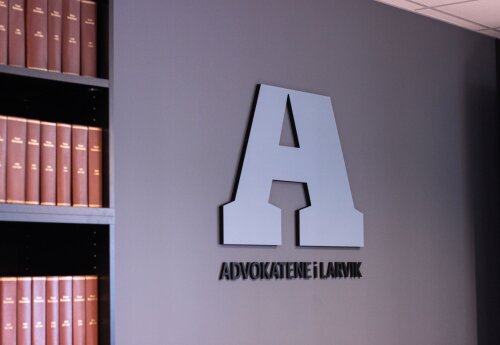Best Due Diligence Lawyers in Norway
Share your needs with us, get contacted by law firms.
Free. Takes 2 min.
Or refine your search by selecting a city:
List of the best lawyers in Norway
About Due Diligence Law in Norway
Due diligence in Norway involves a thorough investigation or audit before entering into an agreement or a financial transaction with another party. This process is essential in ensuring that all aspects of a deal are as expected and helping parties make informed decisions. Norway's legal framework supports due diligence procedures, ensuring that rights and obligations are clear, and mitigating potential risks that could result from a lack of transparency.
Why You May Need a Lawyer
Due diligence can be complex, especially when dealing with cross-border transactions, mergers, acquisitions, or investments. A lawyer can offer expertise to ensure compliance with local laws, negotiate favorable terms, and protect your interests in scenarios such as:
- Conducting business transactions, acquisitions, or mergers.
- Investment in Norwegian companies or real estate.
- Compliance with environmental or regulatory requirements.
- Identifying potential liabilities or risks associated with a transaction.
- Navigating complex contract clauses and legal documentation.
Local Laws Overview
The legal landscape for due diligence in Norway is shaped by several key regulations and principles. Understanding these laws can help ensure compliance and safeguard your interests in financial or business transactions:
- The Companies Act governs corporate due diligence and requires transparency and truthfulness in providing information during company sales.
- Data protection compliance under the EU’s General Data Protection Regulation (GDPR) is crucial for due diligence involving personal data.
- Environmental laws may require assessments to identify any potential ecological liabilities before property or company acquisition.
- Anti-money laundering laws necessitate verification of the source of funds in financial transactions.
Frequently Asked Questions
What is due diligence?
Due diligence refers to the investigation or audit of a potential investment or product to confirm all facts, such as reviewing financial records, and anything else considered material to the transaction.
Is due diligence a legal requirement in Norway?
While due diligence itself is not mandatory, certain aspects, such as environmental assessments and data protection compliance, may require due diligence processes under Norwegian law.
How long does the due diligence process take?
The duration depends on the complexity of the transaction. It can range from a few weeks to several months, depending on the amount of information to be reviewed and the sectors involved.
What documents are typically involved in a due diligence process?
Company financial statements, tax records, employee contracts, intellectual property documents, and any relevant legal agreements are typically reviewed.
Can due diligence uncover hidden liabilities?
Yes. Proper due diligence aims to uncover any potential liabilities, financial, legal, or environmental, that could affect the viability of a transaction.
What happens if issues are found during due diligence?
If issues are identified, the parties can negotiate adjustments to the purchase price, seek indemnities, or even terminate the agreement if necessary.
How does the GDPR affect due diligence in Norway?
The GDPR requires that due diligence processes that involve personal data comply with strict data protection and privacy standards, obliging parties to handle data responsibly.
What role do lawyers play in due diligence?
Lawyers help ensure the due diligence process is comprehensive and legally compliant, identifying potential risks and advising on mitigating those risks.
Are there any sector-specific due diligence requirements?
Yes. For example, transactions involving energy sectors may require extensive environmental and regulatory due diligence.
Can digital tools assist in the due diligence process?
Yes, various digital tools and platforms can facilitate document review, data room management, and analysis, making the due diligence process more efficient.
Additional Resources
Here are some resources where you can find more information on due diligence in Norway:
- The Financial Supervisory Authority of Norway (Finanstilsynet) provides guidelines on financial transactions.
- The Norwegian Competition Authority (Konkurransetilsynet) for merger-related inquiries.
- The Norwegian Data Protection Authority (Datatilsynet) for GDPR and data protection queries.
- The Norwegian Environmental Agency for environmental compliance information.
Next Steps
If you require legal assistance with due diligence in Norway, consider the following steps:
- Contact a law firm that specializes in due diligence and transactional law.
- Prepare all relevant documentation and information related to your transaction or investment.
- Schedule a consultation to discuss your specific needs and concerns.
- Ensure that the lawyer’s expertise aligns with the nature of your transaction (e.g., mergers, real estate, regulatory compliance).
Seeking professional guidance can help you navigate the complexities of due diligence effectively and secure your interests in any transaction.
Lawzana helps you find the best lawyers and law firms in Norway through a curated and pre-screened list of qualified legal professionals. Our platform offers rankings and detailed profiles of attorneys and law firms, allowing you to compare based on practice areas, including Due Diligence, experience, and client feedback.
Each profile includes a description of the firm's areas of practice, client reviews, team members and partners, year of establishment, spoken languages, office locations, contact information, social media presence, and any published articles or resources. Most firms on our platform speak English and are experienced in both local and international legal matters.
Get a quote from top-rated law firms in Norway — quickly, securely, and without unnecessary hassle.
Disclaimer:
The information provided on this page is for general informational purposes only and does not constitute legal advice. While we strive to ensure the accuracy and relevance of the content, legal information may change over time, and interpretations of the law can vary. You should always consult with a qualified legal professional for advice specific to your situation.
We disclaim all liability for actions taken or not taken based on the content of this page. If you believe any information is incorrect or outdated, please contact us, and we will review and update it where appropriate.
Browse due diligence law firms by city in Norway
Refine your search by selecting a city.















